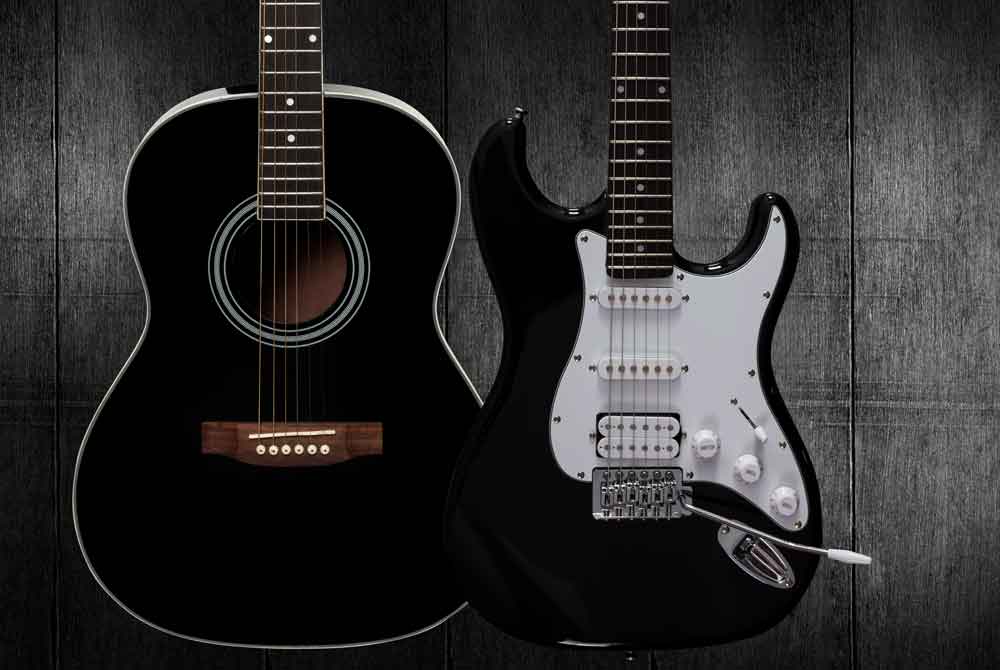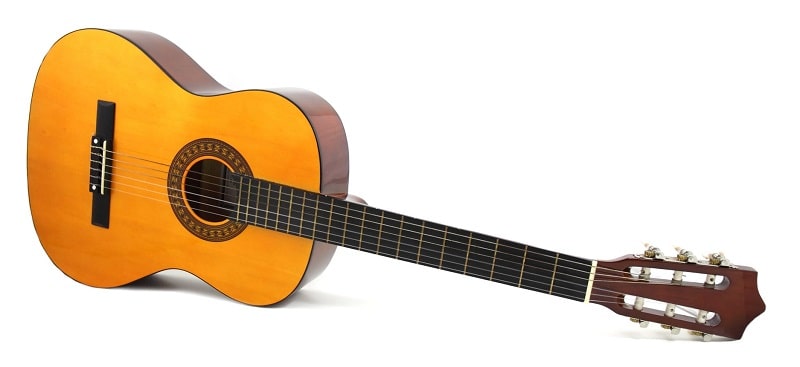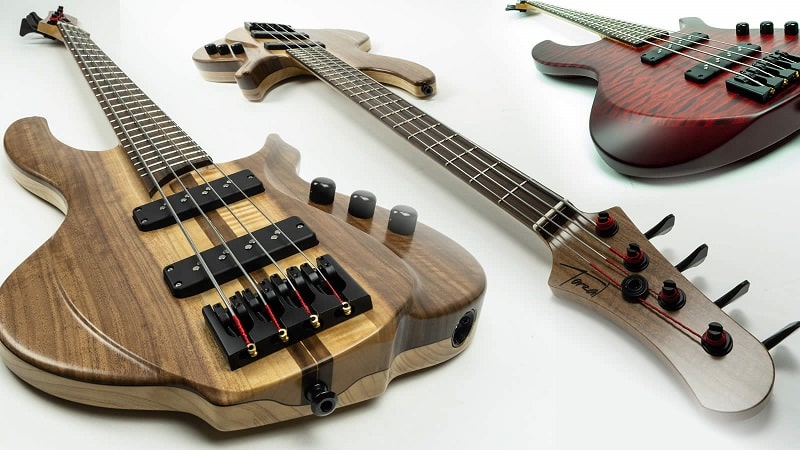

The biggest decision for any aspiring musician is which instrument to choose. If you’re stuck between the bass and the guitar, consider this article your trusted guide for help.
You’ll want to choose an instrument that pairs best with your style. To do this, you must understand each instrument’s unique sound and role.
Let’s review some basic facts about the bass and guitar to help you start your musical journey.
Although the guitar and bass are both stringed instruments that have a similar shape, there are several differences. The most obvious difference being the number of strings. A guitar has six strings, while a bass has four.
The strings on a guitar also variate in grade more than a bass guitar. That’s why guitars have a wider range of sound that includes higher notes in tone. Bass strings are thicker which allows them to hit lower notes that add depth to the music.
Guitars are melodic instruments because their range is the same as voice. The bass, on the other hand, is more of an accompaniment instrument that supports the melody and rhythm.
Other than that, the two are very similar. In fact, you can apply the scales (in a different range), chords, and music theory to both instruments. This gives you an advantage if you decide later to switch between the two. Learning notes on the guitar can make for a smoother transition learning the bass.
Now let’s go over the specifics of each instruments’, sound, role, and style to help you choose.

While no instrument is better than the other, each has its own sound that adds to a composition. When listening to a song, it’s easier to hear the guitar over the bass. This is because the guitar has a higher pitch that distinguishes it from others.
In a song with two singers harmonizing, often the one that we focus on is the person singing the higher harmony. A bass and guitar share a similar story. Bass music is typically the lower harmony of whatever the guitar is playing.
The guitar is very versatile, for it can be both a rhythmic and lead instrument. This means the guitar can define the rhythm in a song but also build upon it. Guitarists play a defining role in the style of a band or song.
Your ultimate choice will depend on your personality and the role you see yourself in. Are you a type-A personality who wants to take the band’s creative lead? If you answered “yes”, you might be more fitted to play guitar.

Musicians use the bass to add depth. They do so by playing along in a lower harmony as well as maintaining a rhythmic foundation.
Many recognizable songs have bass solos. Listen to Another One Bites the Dust by Queen, or Seven Nation Army by The White Stripes to get the point. Listening to the intros to both songs, you will hear a bass playing the melody completely on its own. Then the song begins to introduce more instruments. This gives you a view of what role the bass can play in a song while being both on its own and in tandem with other instruments.
The bass provides the foundation for any song. When listening to a song, think of building a house. The bass acts as the foundation of the home, while the guitar acts as the walls, floors, and windows.
The bass provides the backbone that holds up other instruments. Bassists work along with the drummer to bring life to sound by giving it a beat.
A lot of musicians consider the bass the most important instrument in a band. Bassists rank rhythm over melody. If you’re playing in a band, choosing the bass allows you to have creative control over rhythms and pace.
Which Instrument is Right for You?
Ultimately, your decision about playing the guitar or bass will depend on your personal preferences. Your interests, favorite genres, and personality type can help you make the decision.
Although, being stuck between the decision of bass and guitar isn’t such a bad thing. You can always change your mind and switch to the other. Alternating between the two is not difficult due to the similarities in notes and chords.
Learning any instrument takes time, practice, and patience. But choosing the right instrument for your style is the first step in your musical journey.
If you need to solidify your decision, try taking a few introductory lessons. Playing each instrument and getting the feel for them can help you to make a final decision.
At B Natural Pianos and Music School, we understand the importance of expanding your musical gift. That’s why we are NJ’s #1 private music school. We offer 30-minute weekly music lessons on all instruments including guitar and bass. Contact us today to set up professional lessons with a certified music teacher.
Have more questions? Read our FAQs.
Q: Is the bass easier to play than the guitar?
A. The bass may seem easier at a first glance but that’s not true. The bass is larger, heavier, and has thicker strings. Overall, it’s harder to handle. In fact, beginners may find the guitar easier at first.
Q: Are bass and guitar chords the same?
A: Almost. You can play guitar chords on bass but due to their deep sound, it’s best to fret the chords a bit.
Q: What’s the importance of bass?
A: Rhythm, depth, and low-end sound. Bass works along the drummer to provide the harmonic foundation.
Q: Do I need an amplifier if I play bass?
A: No. It can be helpful to play without it during practice. If you do use an amp, it’s best to rehearse first to control the sound.


